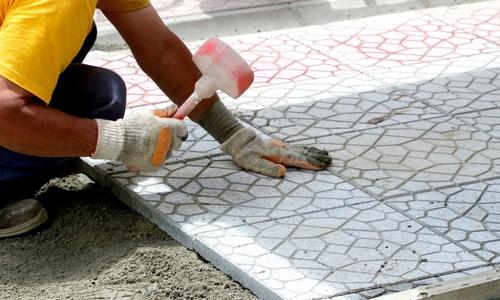
London London
To provide professionals with the necessary knowledge and skills to design, operate, and maintain wastewater pumping stations and treatment plants, ensuring compliance, efficiency, and sustainability in wastewater management.

Dubai Dubai
To equip professionals with the knowledge and skills to mobilize, manage, and align financial resources effectively for sustainable development while localizing the Sustainable Development Goals (SDGs) within national and regional contexts.

Dubai Dubai
This course is designed to provide managers with critical skills in financial control, focusing on budget management, cost control, financial analysis, and strategic decision-making to enhance their financial oversight and contribute to organizational success.

London London
The aim of this training course is to provide participants with a comprehensive understanding of leadership and equip them with the necessary skills to become effective leaders. The course will cover a range of topics, including personal excellence, motivating employees, building high-performance teams, managing conflict, facilitating change, and self-motivation and development.

Dubai Dubai
To provide active documentation and archiving specialists with comprehensive skills in digital archiving, focusing on modern archiving techniques, digital preservation, and effective management of electronic records.

Barcelona Barcelona
To equip Directors of the Office of Chairmans and their Assistants in large public orp rivate organizations with the essential skills and knowledge required to managei nternational protocol and diplomatic relations effectively, ensuring proficientr epresentation and communication at the highest levels.

Dubai Dubai
The aim of this training course is to provide government and public authorities employees with a comprehensive understanding of the fundamentals of law, including legal terminology, legal research, and legal writing.

Muscat Muscat
To equip project professionals with the knowledge and practical skills needed to effectively manage construction projects from planning to execution, with a strong focus on cost control, time management, risk mitigation, and contractual oversight.

Istanbul Istanbul
To provide IT and network security professionals with comprehensive skills in configuring, managing, and troubleshooting FortiGate firewalls to protect network environments against cyber threats and ensure secure connectivity.

Cairo Cairo
The aim of this training course is to provide participants with a comprehensive understanding of the webMethods platform and its capabilities.

London London
To equip professionals with the skills and knowledge necessary for effective business relationship management, focusing on strategic partnership development, stakeholder engagement, and value realization in business interactions.

London London
To provide senior leaders with a strategic understanding of Artificial Intelligence (AI) and its role in transforming business models, optimizing operations, and driving competitive advantage—without requiring technical expertise.

Dubai Dubai
This course is designed for managers to enhance their understanding and application of service management principles, with a special focus on process automation. It aims to equip them with the skills to streamline service delivery, improve efficiency, and drive organizational success through automated processes.

Dubai Dubai
To develop the professional communication skills and digital etiquette required to engage effectively across social media and digital platforms, in alignment with organizational values, branding, and public expectations.

Dubai Dubai
To provide professionals with advanced skills and knowledge in optimizing local content and enhancing in-country value, focusing on sustainable economic development, local industry support, and strategic compliance with regulatory frameworks.

London London
To provide leaders and managers with advanced skills and knowledge to enhance leadership capabilities, effective management practices, and supervisory performance, ensuring organizational success and team development.

London London
To equip engineers, architects, and transportation professionals with the skills and knowledge necessary to perform sophisticated traffic analysis for vertical transportation systems such as elevators and escalators, optimizing flow and efficiency in high-rise buildings and complex environments.

Istanbul Istanbul
To empower IT professionals with advanced scripting skills tailored for automating and optimizing Active Directory management tasks, enhancing operational efficiency, and ensuring compliance through precise and automated processes.

Istanbul Istanbul
To provide IT professionals, developers, and system architects with deep insights into application configuration management and data architecture, equipping them with the skills to design, implement, and manage complex systems effectively for optimal performance and scalability.

Istanbul Istanbul
To equip IT professionals with the foundational knowledge and skills necessary to implement and manage effective IT Service Management (ITSM) practices, based on industry standards and best practices, to enhance IT service delivery and support organizational goals.

London London
To provide professionals with the necessary knowledge and skills to design, operate, and maintain wastewater pumping stations and treatment plants, ensuring compliance, efficiency, and sustainability in wastewater management.

Dubai Dubai
To equip professionals with the knowledge and skills to mobilize, manage, and align financial resources effectively for sustainable development while localizing the Sustainable Development Goals (SDGs) within national and regional contexts.

Dubai Dubai
This course is designed to provide managers with critical skills in financial control, focusing on budget management, cost control, financial analysis, and strategic decision-making to enhance their financial oversight and contribute to organizational success.

London London
The aim of this training course is to provide participants with a comprehensive understanding of leadership and equip them with the necessary skills to become effective leaders. The course will cover a range of topics, including personal excellence, motivating employees, building high-performance teams, managing conflict, facilitating change, and self-motivation and development.

Dubai Dubai
To provide active documentation and archiving specialists with comprehensive skills in digital archiving, focusing on modern archiving techniques, digital preservation, and effective management of electronic records.

Barcelona Barcelona
To equip Directors of the Office of Chairmans and their Assistants in large public orp rivate organizations with the essential skills and knowledge required to managei nternational protocol and diplomatic relations effectively, ensuring proficientr epresentation and communication at the highest levels.

Dubai Dubai
The aim of this training course is to provide government and public authorities employees with a comprehensive understanding of the fundamentals of law, including legal terminology, legal research, and legal writing.

Muscat Muscat
To equip project professionals with the knowledge and practical skills needed to effectively manage construction projects from planning to execution, with a strong focus on cost control, time management, risk mitigation, and contractual oversight.

Istanbul Istanbul
To provide IT and network security professionals with comprehensive skills in configuring, managing, and troubleshooting FortiGate firewalls to protect network environments against cyber threats and ensure secure connectivity.

Cairo Cairo
The aim of this training course is to provide participants with a comprehensive understanding of the webMethods platform and its capabilities.

London London
To equip professionals with the skills and knowledge necessary for effective business relationship management, focusing on strategic partnership development, stakeholder engagement, and value realization in business interactions.

London London
To provide senior leaders with a strategic understanding of Artificial Intelligence (AI) and its role in transforming business models, optimizing operations, and driving competitive advantage—without requiring technical expertise.

Dubai Dubai
This course is designed for managers to enhance their understanding and application of service management principles, with a special focus on process automation. It aims to equip them with the skills to streamline service delivery, improve efficiency, and drive organizational success through automated processes.

Dubai Dubai
To develop the professional communication skills and digital etiquette required to engage effectively across social media and digital platforms, in alignment with organizational values, branding, and public expectations.

Dubai Dubai
To provide professionals with advanced skills and knowledge in optimizing local content and enhancing in-country value, focusing on sustainable economic development, local industry support, and strategic compliance with regulatory frameworks.

London London
To provide leaders and managers with advanced skills and knowledge to enhance leadership capabilities, effective management practices, and supervisory performance, ensuring organizational success and team development.

London London
To equip engineers, architects, and transportation professionals with the skills and knowledge necessary to perform sophisticated traffic analysis for vertical transportation systems such as elevators and escalators, optimizing flow and efficiency in high-rise buildings and complex environments.

Istanbul Istanbul
To empower IT professionals with advanced scripting skills tailored for automating and optimizing Active Directory management tasks, enhancing operational efficiency, and ensuring compliance through precise and automated processes.

Istanbul Istanbul
To provide IT professionals, developers, and system architects with deep insights into application configuration management and data architecture, equipping them with the skills to design, implement, and manage complex systems effectively for optimal performance and scalability.

Istanbul Istanbul
To equip IT professionals with the foundational knowledge and skills necessary to implement and manage effective IT Service Management (ITSM) practices, based on industry standards and best practices, to enhance IT service delivery and support organizational goals.
